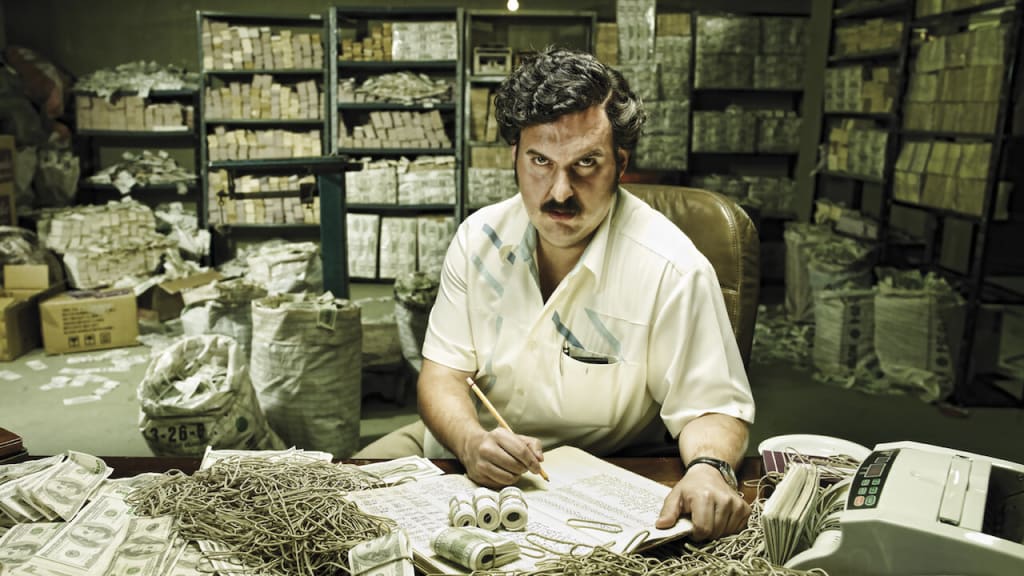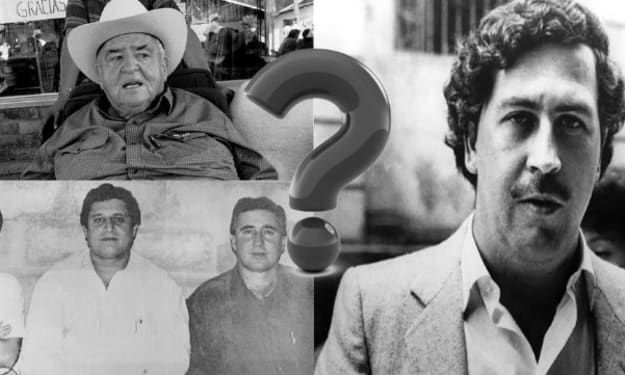Pablo Escobar: The Rise and Fall of a Drug Lord
Subtitle: The Legacy of Violence and Corruption in Colombia

Pablo Escobar was one of the most infamous drug lords in history. Born on December 1, 1949, in Rionegro, Colombia, he grew up in a middle-class family and was the third of seven children. Escobar's father was a farmer and his mother was a schoolteacher, but despite their modest means, they made sure he received a good education.
However, Escobar's early life was marked by a series of incidents that would shape his future. In his teenage years, he began stealing tombstones from a local cemetery and selling them to smugglers. Later, he got involved in the drug trade, starting with marijuana and then moving on to cocaine. He eventually became the leader of the notorious Medellin Cartel, which was responsible for 80% of the cocaine smuggled into the United States during the 1980s.
Escobar's rise to power was not without its share of violence. He was responsible for ordering the killings of thousands of people, including judges, politicians, and law enforcement officials. In fact, the death toll attributed to his reign of terror is estimated to be around 10,000. He was also known for his extravagant lifestyle, including his sprawling estate, Hacienda Napoles, which boasted a private zoo, a bullring, and even a landing strip for his fleet of planes.
Despite his immense wealth and power, Escobar's downfall came in 1991 when he was captured and imprisoned. He escaped from prison the following year and went into hiding, but he was eventually tracked down and killed by Colombian authorities in 1993. However, his legacy continues to haunt Colombia to this day.
There are many factors that contributed to Escobar's rise to power, including poverty, corruption, and the demand for drugs in the United States. In the 1970s and 1980s, Colombia was one of the poorest countries in Latin America, and many people turned to drug trafficking as a means of survival. At the same time, corruption was rampant in the government and law enforcement agencies, which allowed drug traffickers like Escobar to operate with impunity.
In addition, the demand for cocaine in the United States was skyrocketing, which made the drug trade incredibly lucrative. Escobar was able to take advantage of this demand by creating a highly efficient smuggling operation that could transport large quantities of cocaine into the United States undetected.
One of the most striking things about Escobar was his ability to create a cult of personality around himself. He was viewed by many people in Colombia as a modern-day Robin Hood who used his wealth to help the poor. He was also known for his charisma and his ability to connect with people from all walks of life.
However, his public image was at odds with the brutal reality of his regime. Escobar was responsible for countless murders, including the bombing of a commercial airliner in 1989 that killed 107 people. He also used terror tactics to silence his opponents, including judges and journalists.
The legacy of Escobar's reign of terror can still be felt in Colombia today. While the country has made significant progress in combating drug trafficking and violence, it continues to struggle with corruption and poverty. In addition, the violence that Escobar unleashed has had lasting effects on the country's social fabric, and it will take years to heal the wounds that he inflicted.
In conclusion, Pablo Escobar was a ruthless drug lord who used violence and intimidation to maintain his grip on power. His legacy is a tragic reminder of the devastating impact that drugs and violence can have on individuals and society as a whole. While he may be gone, the scars of his regime are still visible in Colombia today, and they serve as a warning of the dangers of drug trafficking and corruption. It is up to all of us to work towards a better future, one where drugs and violence are no longer seen as viable solutions to social and economic problems. We must address the root causes of poverty and corruption, and work towards building a society that values justice, equality, and the rule of law. Only then can we hope to leave behind the legacy of Pablo Escobar and create a brighter future for generations to come.
About the Creator
Aadhi Penten
With a love for exploring the world and a passion for sharing my experiences through words, my articles is a window into my life and a source of inspiration for those seeking adventure. From travel tips to personal stories






Comments
There are no comments for this story
Be the first to respond and start the conversation.